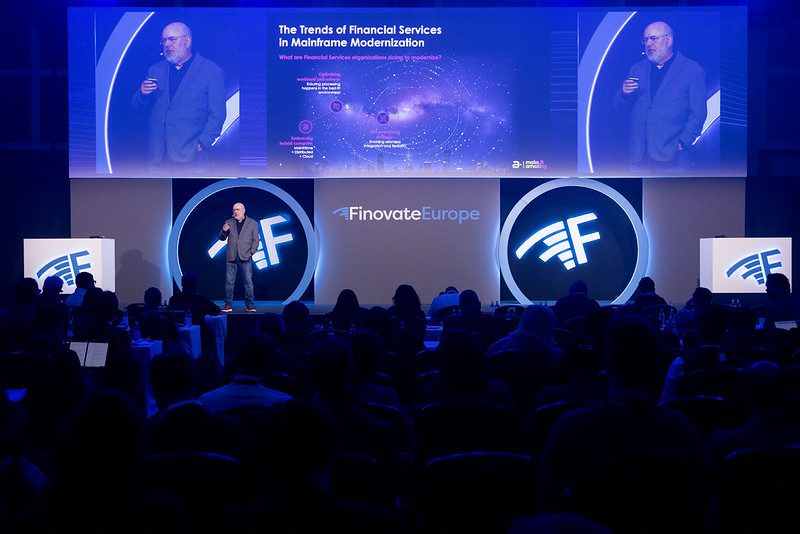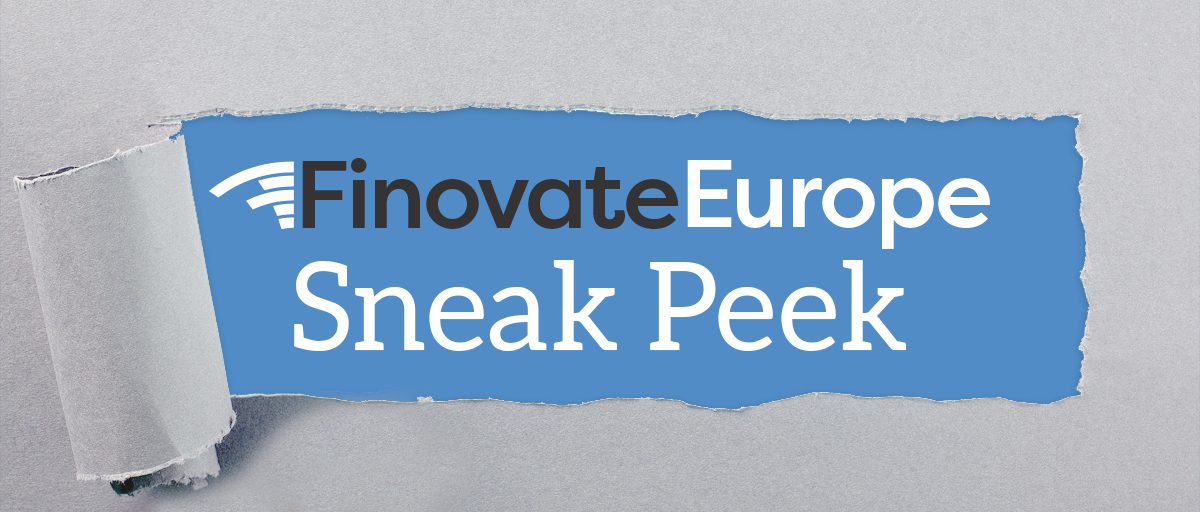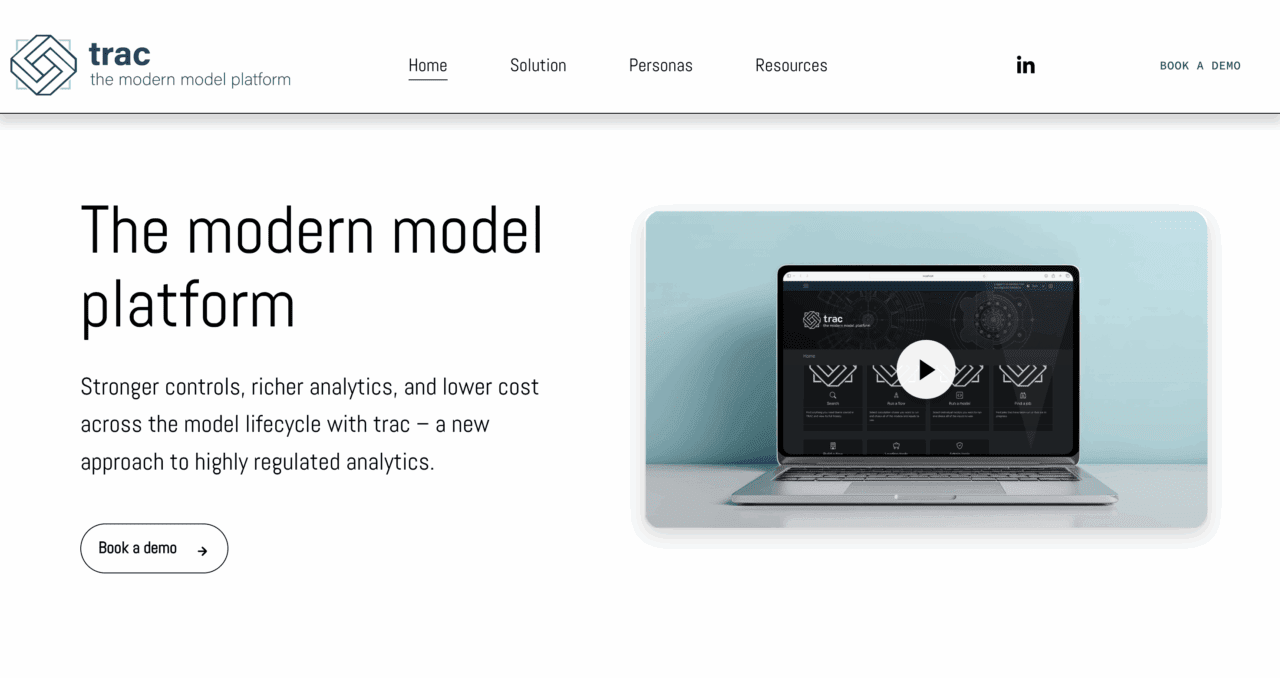
Last week, Finovate Global looked at how key trends are shaping fintech innovation in the UK. This week, our Friday column crosses the channel to consider the most significant forces shaping fintech innovation on the Continent, especially among advanced industrial economies in the West and Baltic north.
In our examination of the UK, we highlighted navigating regulatory complexity, accelerating technological transformation, and meeting rising customer expectations as three key issues facing banks and financial services providers there. These issues are also important to markets in the advanced markets of Europe. However, there are additional themes that distinguish the concerns of bankers in developed Europe from their colleagues in both the UK and the US.
Profitability and Competitiveness in the Shadow of NIRP
One of the challenges that European banks are still dealing with is the legacy of negative interest rates. Just as the US economy was emerging from its post-Global Financial Crisis (GFC)-initiated ZIRP or zero interest rate policy, the EU was plunging into what would be a seven-year experiment in negative interest rates (NIRP). A response to the threat of deflation in the wake of the Global Financial Crisis and, more acutely, the sovereign debt crisis of 2010-2012, the EU’s NIRP policy lasted longer and was more extreme, with rates falling to -0.50%.
The impact on EU banks has been significant. Even as interest rates have normalized since NIRP ended in 2022, net interest income for EU banks has remained squeezed, impeding profitability. Additionally, European banks suffer from structural challenges to greater profitability that extend beyond the legacy of NIRP. Among them is one fundamental issue: there are a lot of banks in Europe, arguably too many, all chasing too few customers. Considered on a per capita basis, countries such as Germany, Austria, Switzerland, and Italy have a very large number of banks and similar financial institutions relative to their populations. By comparison, the UK is significantly less “bank dense,” and even the US, which is often accused of having “too many banks,” is considered only moderately bank dense.
Along with excess capacity, issues of market fragmentation and high cost-to-income ratios all contribute to an environment in which achieving profitability as an EU bank remains a challenge. Banks struggling to make money often hesitate to make the necessary investments in technology that can help them reach new customers, access new markets, and offer new products and services.
A More Integrated Union? Overcoming Fragmentation to Enable Innovation
Both the EU and UK face challenges when it comes to digital transformation. But the differences between the two regions are significant and in some ways related to the issues of market fragmentation that plague EU bank profitability. When it comes to digital transformation and investing in technology, fragmentation and diversity between member states make the task more difficult and more expensive. Larger EU banks often have country- and product-specific legacy cores—sometimes even different cores built in multiple decades. These legacy cores not only fail to communicate well with each other, but also often exist in increasingly outdated mainframe environments. On the other hand, smaller banks and financial institutions in the EU often simply can’t afford major core replacements.
Uneven development and country-specific challenges often hold back fintech innovation in the EU. Even where the EU has effectively encouraged innovation, such as PSD2, which mandated open banking, adoption and implementation has varied widely by country. While open banking adoption rates in parts of Europe, such as the Baltics, are exceptional, many other countries, including Western European countries like France, Germany, and Spain, have had more modest rates of implementation. In this context, it will be interesting to see how the different countries embrace Wero, the new pan-European instant payments and wallet scheme currently being introduced throughout the EU. Here, countries like France, Germany, and Belgium are experiencing strong implementation and user adoption trends, while others, including Spain, Italy, and Switzerland are lagging.
How are some of the other enabling innovations—such as AI and DeFi—shaping banking and financial services in Western Europe? The European Banking Authority characterizes adoption of AI in its industry as “widespread but cautious.” Unsurprisingly, use cases in customer service are the most common, as is the use of AI to help in AML/CFT screening. In addition to customer service, streamlining internal workflows is another popular use case for AI among EU banks. Generally speaking, the larger markets of the EU—Germany, France, the Nordics—are experiencing the most robust use of AI in banking and financial services.
The story is similar with DeFi and blockchain technology adoption in banking: the larger countries tend to have more banks engaged in activities such as digital asset custody services, tokenization, and trade finance. One especially interesting development is the pursuit of a euro stablecoin, an effort led by a consortium of EU banks including ING, UniCredit, and SEB that is expected to lead to a MiCA-compliant euro stablecoin launch later this year.
A Regulatory Year of Reckoning for Payments, Crypto, and AI in the EU
There is a variety of regulatory events coming this year. Some of them are the latest chapters in policies that were enacted last year, while others will make their compliance debut here in 2026. With regard to the former, regulations such as DORA (Digital Operational Resilience Regulation) which was passed in 2025 and deals with ICT, third-party, and operational risk, will continue to have an impact as institutions look to ensure compliance with resilience requirements for governance, testing, and incident reporting. Elements of the Basel III reforms, initially designed to help fortify banks in the wake of the Global Financial Crisis, have been postponed from scheduled implementation this year to 2027. Speaking of postponements, another significant regulation, the Enhanced Operational Risk Reporting Deadline, has been moved forward to June of this year.
Other key regulatory developments to anticipate for EU banks and financial services providers include the rollout of new payment regulations including PSD3, which focuses on licensing and institutional requirements, and PSR (Payment Services Regulation), which deals with day-to-day operational issues. PSD3, in particular, will be an important mandate insofar as it seeks to correct a number of problems with the previous open banking directive, PSD2. PSD3 features significant guidelines and requirements with regard to fraud prevention and liability, and also paves the way for open finance.
What about the enabling technologies highlighted in the previous section? With regard to DeFi and crypto, the Markets in Crypto-Assets Regulation (MiCA) comes fully into effect in 2026. Among the requirements are that cryptocurrency firms must have MiCA licenses to operate by the middle of the year. While this will address centralized service providers (CASPs) in the DeFi market, it does not specifically define the parameters of DeFi, including what services should be subject to MiCA. This conversation will be key for EU policy-makers in 2026.
As for AI, 2026 will be a big year, as well. Enacted in 2024, the EU AI Act will require AI systems designated as “high risk” to adhere to new guidelines with regards to creditworthiness, loan origination, risk evaluation, and automated decisioning. Additionally, the Act will require these systems to use strong governance, risk management documentation, transparency, human oversight, and quality control. Note that the Act categorizes AI systems by risk: minimal/no risk, which is virtually unregulated; limited risk, where compliance consists largely of transparency obligations; high risk, which is strictly regulated; and banned AI, which includes capabilities such as social scoring by governments and real-time remote biometric identification. Another key development is the launch of national AI regulatory sandboxes in each EU member state by August of this year, as mandated by the Act. Here, both Denmark and Spain have been credited as being ahead of the game in terms of getting these initiatives underway.
Here is our look at fintech innovation around the world.
Asia-Pacific
- Singapore-based Airwallex acquired Paynuri in bid to enter the South Korean market.
- Indonesian fintech UangCermat raised $26.4 million in a combination of equity and credit facilities.
- Vietnam announced that crypto firms that want to participate in the country’s pilot digital asset market will need a minimum capitalization of VND 10 trillion ($400 million).
Sub-Saharan Africa
- Payment software firm Akurateco forged a strategic partnership with African digital payments service provider Payaza.
- Two South African fintechs—Johannesburg’s RelyComply and Cape Town’s Ozow—teamed up to enhance security for digital payments in the country.
- The Africa Report profiled SycaPay, the first fintech to be licensed by the Central Bank of West African States (BCEAO).
Central and Eastern Europe
- German KYB/KYC lifecycle management platform Sinpex raised €10 million in Series A financing.
- Greece-based Epirus Bank teamed up with NCR Atleos to modernize and expand its ATM network.
- Berlin-based climate fintech Cloover secured a $1.2 billion debt facility and raised $22 million in Series A funding.
Middle East and Northern Africa
- PayPal acquired Israel-based agentic commerce innovator Cymbio.
- Financial infrastructure and payment solutions provider Montran opened a new office in Dubai.
- Saudi Arabia’s EdfaPay, a payment infrastructure solutions company, secured approval to launch SmartPOS service in the Kingdom.
Central and Southern Asia
- Indian digital payments giant PhonePe secured approval from the country’s financial regulator to launch an IPO, slated for mid-2026.
- Pakistan-based fintech Neem raised an undisclosed sum in Pre-Series A funding in a round that featured participation from Epic Angels, the largest all-female investment collective in the world.
- Kazakhstan enacted a range of new laws to regulate digital assets and to allow banks to expand into fintech, AI, and digital payments infrastructure.
Latin America and the Caribbean
- Uruguayan cross-border payment platform dLocal teamed up with international AI device ecosystem company HONOR to launch local payments in Peru.
- Cryptocurrency exchange Bybit launched Bybit Pay in Peru via integrations with the country’s Yape and Plin digital payment platforms.
- UK-based stablecoin infrastructure company Noah partnered with Brazil-based digital wallet and investment platform Picnic.












